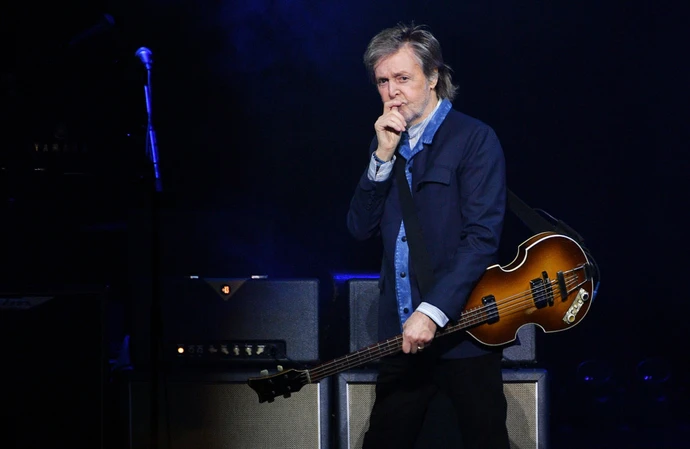Sir Paul McCartney felt ‘dead’ after The Beatles broke up
In a candid extract from his new memoir, Sir Paul McCartney has admitted he felt “dead” after The Beatles broke up.

Sir Paul McCartney felt “dead” after The Beatles broke up.
Revealing he was left adrift and close to quitting music amid rumours that he had died in a car crash. the 83-year-old musician has recounted the emotional fallout from the band’s split and the intense scrutiny that followed in his new memoir, Wings: The Story of a Band on the Run.
In the book, he revisits the long-running “Paul is dead” conspiracy that first surfaced in 1966 and exploded three years later, when fans claimed The Beatles had replaced him with a lookalike.
Paul said: “The strangest rumour started floating around just as The Beatles were breaking up, that I was dead. We had heard the rumour long before but, suddenly, in that autumn of 1969 stirred up by a DJ in America, it took on a force all of its own, so that millions of people around the world believed I was actually gone.”
He said he and his wife Linda were “aware of the power of gossip and the absurdity” of the stories and had moved out of London “precisely to get away from the kind of malevolent talk that was bringing The Beatles down”.
Paul added: “Now that over half a century has passed since those truly crazy times, I'm beginning to think that the rumours were more accurate than one might have thought at the time.
“In so many ways, I was dead, a 27-year-old about-to-become-ex-Beatle, drowning in a sea of legal and personal rows that were sapping my energy, in need of a complete life makeover.”
The former Beatle said moving with Linda and their daughter Mary to a sheep farm in Scotland helped him to recover.
He added: “The old Paul was no longer the new Paul.
“For the first time in years, I felt free suddenly leading and directing my own life. I was not conscious at the time of moving away from the long shadow cast by The Beatles, but that's exactly what I was doing.”
Determined to forge a new path, he released the 1971 album Ram with Linda and drummer Denny Seiwell, before forming Wings with Linda and former Moody Blues guitarist Denny Laine.
The early reception was harsh.
Rolling Stone magazine dismissed Ram as “incredibly inconsequential and monumentally irrelevant”, while the NME described it as weak.
Paul said: “I did get depressed. I was getting slagged off by everyone, and that does make you question if you've still got it. It makes you think, ‘Can I still do this? Can I make a decent record?’ I did seriously consider packing it in on a number of occasions.”
Instead, Wings went on to achieve global success.
Their 1973 album Band on the Run reached No 1, followed by Venus and Mars and the 1977 Christmas hit Mull of Kintyre, which became the first single to sell more than two million copies in the UK.
After the breakup of Wings in 1981, Paul began a solo career that has lasted more than four decades.
In the foreword to his book, he reveals that he is still writing and recording new music.
He said: “I have 25 songs that I'm finishing in the next few months.
“New songs that are interesting. I can hear something, I can hear a piece of music, and think, ‘Oh, I love that.’ And I'll incorporate that feeling into a new song.”
Wings: The Story of a Band on the Run by Paul McCartney is published by Allen Lane.







